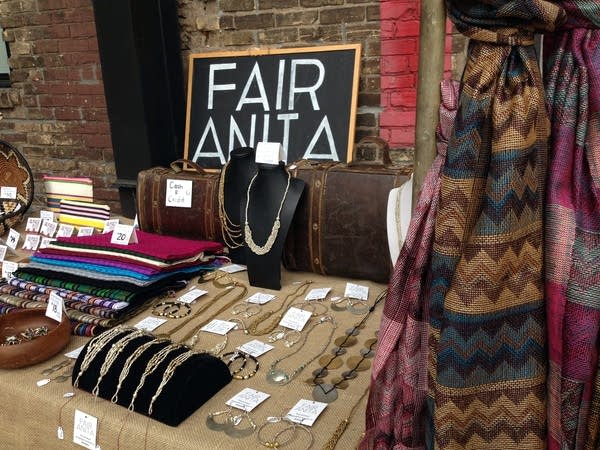Bullets to beauty: St. Paul woman recycles materials of war

Fair Anita sells their products at local craft fairs, like this one at Bauhaus Brewery in Minneapolis on Sept. 1, 2015, as well as online and to shops like the Weisman Art Museum, Ten Thousand Villages in St. Paul and Regla De Oro in Minneapolis.
Courtesy of Joy McBrien
Go Deeper.
Create an account or log in to save stories.
Like this?
Thanks for liking this story! We have added it to a list of your favorite stories.


